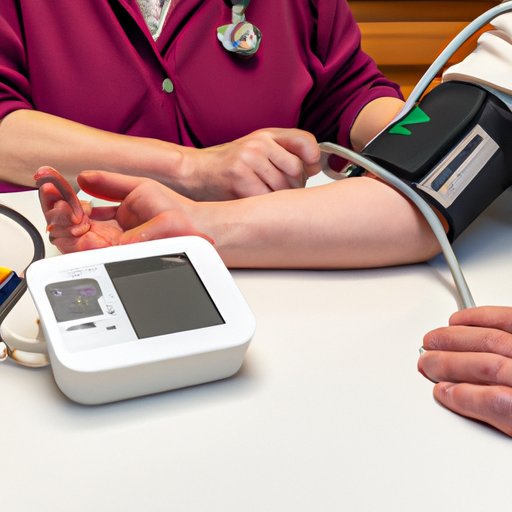
Introduction:
High blood pressure or hypertension is a common health condition that occurs when the force of blood against the artery walls is too high. If left untreated, this condition can lead to serious health issues such as heart disease, stroke, and kidney failure. Common causes of high blood pressure include poor diet, lack of exercise, stress, genetics and aging. Managing high blood pressure early on is crucial to lead a long and healthy life.
Lifestyle Modifications:
Your lifestyle plays a significant role in your blood pressure levels. Incorporating certain changes in your diet, exercise routine, and stress management can help you manage high blood pressure effectively. A heart-healthy diet rich in fruits, vegetables, lean proteins, whole grains, and healthy fats is ideal to maintain optimal blood pressure levels. Avoiding processed foods, sugar, and excessive amounts of salt is also crucial. Regular exercise routines such as brisk walking, swimming, and cycling help reduce blood pressure levels and manage weight as well. Relaxation techniques such as yoga and meditation can also calm the mind and reduce stress levels, which can contribute to lower blood pressure levels.
Medications:
If lifestyle modifications alone cannot manage high blood pressure, your doctor may recommend medication therapy. There are several types of blood pressure medications that work differently to lower blood pressure levels. Diuretics, ACE inhibitors, and beta-blockers are some of the most commonly prescribed medications for high blood pressure. The dosage and possible side effects of each medication can vary, so it is essential to follow your doctor’s instructions. Indications for medication therapy can vary depending on your age, medical history, and overall health condition.
Alternative Therapies:
Alternative therapies such as acupuncture, herbs, and supplements have been found effective in managing blood pressure levels in some individuals. However, it is crucial to understand that these therapies should not be used as a replacement for conventional medication therapy. It is also important to note that not all supplements and herbs are safe and effective, and they may interact with other medications you’re taking. It’s always wise to consult with your doctor before trying any alternative therapies.
At-home Monitoring:
Regularly monitoring blood pressure at home is a crucial part of managing high blood pressure. It helps you keep track of your blood pressure levels, and you can share the results with your healthcare provider to determine the effectiveness of your treatment plan. You can buy a blood pressure monitor at a pharmacy or online retailer. It is important to use the monitor properly and follow the instructions for taking accurate and reliable readings.
Seeing a Doctor:
If lifestyle modifications and medication therapy are not enough to control high blood pressure, it is crucial to seek the help of a healthcare professional. Regular check-ups and routine lab tests help to assess the effectiveness of your current treatment and detect any potential complications early on. It is essential to work with a qualified and trusted healthcare provider who specializes in hypertension management. Ask your doctor for referrals and do your own research to choose the best provider for you.
Conclusion:
High blood pressure is a common health condition that can lead to serious complications if left untreated. However, managing high blood pressure is possible with certain lifestyle modifications, medication therapy, alternative therapies, at-home monitoring, and regular check-ups with a healthcare professional. The key is taking charge of your health and committing to a long-term treatment plan. By managing high blood pressure, you can reduce your risk of developing heart disease, stroke, and kidney failure, and lead a healthy and fulfilling life.
Final tips and advice for managing high blood pressure:
- Quit smoking if you are smoker.
- Monitor your blood pressure levels regularly at home.
- Reduce stress through meditation practice and other relaxation techniques.
- Limit your alcohol intake to one drink per day for women and two drinks for men.
- Work with a healthcare professional to develop an effective and comprehensive treatment plan.




